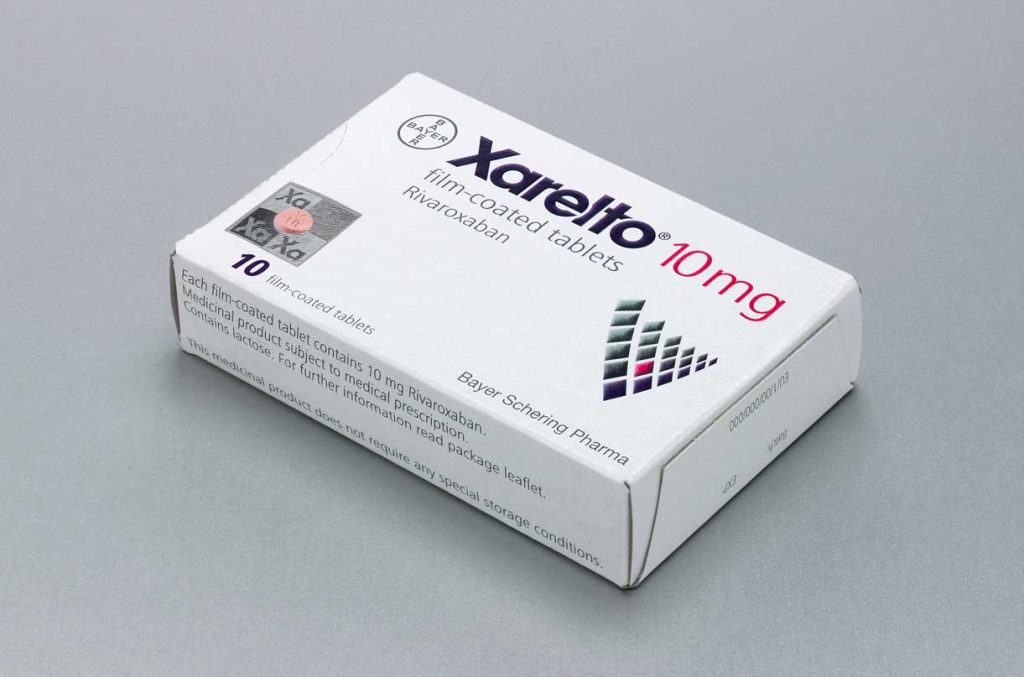
Investigation questions Xarelto trial data accuracy
pharmafile | February 4, 2016 | News story | Medical Communications | BMJ, Bayer, INR, Johnson & Johnson, New England Journal of Medicine, Rocket-AF, Xarelto, blood clotting, rivaroxaban
The ROCKET-AF trial, the pivotal trial of the top-selling anti-clotting drug Xarelto, could have been undermined by unreliable results from a blood testing device, it has been claimed.
An investigation in the BMJ alleges that the results, drawn from analysis of data from blood testing devices that measured the effectiveness of Xarelto (rivaroxaban), could be invalid. The testing device that was used during the trial was recalled in December 2014, after being found to give falsely low test results. The BMJ says the makers of the device admit that the fault dates back to 2002, but no action was taken.
In November 2015, the EMA told The BMJ they were investigating the fault, while the FDA said they were “aware of concerns regarding the INRatio device and its use in the ROCKET-AF trial and is reviewing relevant data.”
In December Duke University’s Clinical Research Institute carried out a trial on behalf of Johnson & Johnson, the owner of Janssen which markets Xarelto in the US. The sponsored analyses found finding that Duke said “are consistent with the results from the original trial and do not alter the conclusions of ROCKET-AF.”
The BMJ, and several clinicians approached by the journal, are calling for an independent investigation and access to the original trial data to clarify the drug’s benefits and harms. But the journal says that “previous attempts to do this have been thwarted by Bayer who… have only signed up to sharing information on ‘study reports for new medicines approved in the US and the EU after January 1, 2014.’”
And Harlan Krumholz, professor of medicine at Yale University, says the New England Journal of Medicine (NEJM), the journal that published the ROCKET-AF trial, should flag up concerns about the paper to the medical community. There should be “an investigation by an independent group of experts to quickly determine if there are grounds for retraction,” he adds.
This week the ROCKET AF executive committee have published their re-analysis of the study in the NEJM. Their research letter states that “these results are consistent with those of the overall trial population in showing the non-inferiority of rivaroxaban versus warfarin for preventing stroke and systemic embolism, with similar rates of overall bleeding and lower rates of fatal and intracranial bleeding among patients treated with rivaroxaban but a higher rate of gastrointestinal bleeding.”
They conclude that “these results are consistent with the overall trial findings and indicate that possible malfunction of the point-of-care device used for INR measurement in the ROCKET AF trial that potentially led to lower INR values than would be obtained by laboratory testing did not have any significant clinical effect on the primary efficacy and safety outcomes in the trial.”
Dr Michael Devoy, head of medical affairs and pharmacovigilance and Bayer’s chief medical officer, says in a statement: “Thoroughly investigating whether the use of this device had any impact on the ROCKET AF study results has been our priority since we learnt about the potential malfunctioning of the INR device and it is very reassuring to us that the analyses confirm the results of the ROCKET AF study.
“What was reassuring from the start is that the results originally seen in ROCKET AF are in line with the post-marketing studies with Xarelto in stroke prevention in patients with atrial fibrillation. Xarelto is the most studied of all of the NOACs and its positive benefit-risk profile has been repeatedly demonstrated across its approved indications.”
Lilian Anekwe
Related Content

Johnson & Johnson to acquire Shockwave Medical
Johnson & Johnson (J&J) and Shockwave Medical have announced that they have entered into a …

FDA approves J&J’s Opsynvi for PAH treatment
Johnson & Johnson (J&J) has announced that the US Food and Drug Administration (FDA) has …

Bayer and Aignostics to collaborate for AI oncology research
Bayer and Aignostics have announced that they have entered into a strategic collaboration for several …








